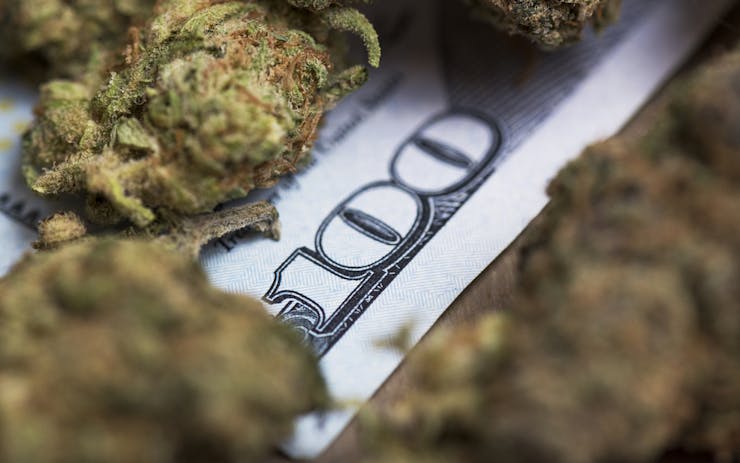A plan that would have cut taxes on commercial cannabis in California is on hold indefinitely after the bipartisan legislation failed to pass out of an Assembly committee last week.
The bill, AB 3157, would have temporarily reduced the state excise tax on cannabis from 15% to 11% and suspended a separate tax on cannabis cultivation. The bill’s proponents said the measure, which would have reduced taxes for a period of three years, was meant to speed the transition away from the state’s thriving illegal market and into state-regulated sales.
Find a Licensed California Dispensary
“Today was another big win for the black market,” Assemblyman Tom Lackey, who co-authored the measure, said after Friday’s vote. “All we wanted to do is to level the playing field financially.”
The bill’s co-authors include Assemblymembers Rob Bonta (D-Oakland), Ken Cooley (D-Sacramento), Reggie Jones-Sawyer (D-Los Angeles), and Jim Wood (D-Healdsburg).
Cannabis growers and sellers in California, which launched the nation’s largest legal market at the start of the year, have complained that taxes are too high. They argue many consumers are shopping in the underground market to save money.
In some areas, combined state and local taxes can approach 50%.
But according to Lackey, opponents of the measure said it was too soon to slash taxes without further evidence they were driving consumers to the illicit market. He said he hopes to see the bill revived later this year despite being shelved by the Assembly Appropriations Committee.
Last week’s vote came shortly after reports that state cannabis tax revenue from the first three months of legal sales had fallen short of state budget forecasters’ estimates. The state expects to make $175 million in excise tax revenue in 2018, but the first quarter of the year saw just $34 million. If sales were to continue at that pace, the state would see about $39 million less than expected by the year’s end.
Prior to those reports, the tax-cut bill had passed through two other Assembly committees unopposed.
Cutting taxes could risk lowering state revenues, but it could also encourage more consumers to purchase their cannabis from licensed retailers rather than sellers on the illegal market who pay no tax at all. Analysts disagree over the best way forward.
At the local level, some officials are already taking action to cut taxes.
Monterey County slashed its marijuana tax rate last week, after hearing complaints from local growers. An attorney for the growers said the decision will help a struggling industry take root in the farming region about 120 miles south of San Francisco.
At the state level, all California cannabis is subject to sales tax, a 15% cannabis excise tax, as well as a $9.25-per-ounce cultivation tax. Cities and counties can impose further taxes, in some cases up to 20%. (Medical cannabis patients can avoid paying state sales tax, but they must pay up to $100 to obtain a state-issued ID card.)
In February, the city of Berkeley—which boasted one of the highest tax rates in the state, 34.25%, when commercial sales went live on Jan. 1—voted to cut its local 10% tax in half, down to 5%.
“We’ve been screaming at these guys for three or four years to really watch out for the tax rate, because it’ll make the difference between the success of this regulatory environment or its failure,” Matt Kumin, a San Francisco-based cannabis business attorney, told Leafly at the time. “If [Berkeley’s move] is not a trend, the black market is going to win. And the regulations will fail.”
The Associated Press contributed to this report.





